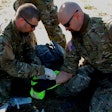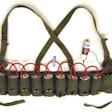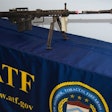Lately, it seems this column has been top-heavy with bad news about police tragedies. Last week, I discussed three tragic police line-of-duty deaths. Each is a tragic loss—impacting families, friends, colleagues, agencies, and communities—reaching far beyond to the entire law enforcement profession throughout the United States and Canada.
Last Friday, 4,000 people attended Cleveland police officer Derek Owens funeral. Most in attendance were police officers from far and wide, including Canada. All came to honor a fallen comrade, and those unable to be there in person, paid their respects from afar. Ours is a profession with a proud tradition of honoring our fallen, no matter who or where they’re from.
However, it’s not all “doom and gloom” in our profession. Far from it, as evidenced by recent statistics from the National Law Enforcement Officer Memorial Fund (NLEOMF), the odds are against you being killed or seriously injured in the line of duty. However, before I cite any statistics, I first want to point out that even a single law enforcement death is one death too many.
According to the NLEOMF, there are currently 870,000 local, state, and federal law enforcement officers in the United States. In 2005 (most recent figures available), 59,432 law enforcement officers were assaulted in the line of duty, resulting in 16,072 injuries. In 2007, there were 186 law enforcement officers killed in the line of duty in the United States. As of March 10, 2008, 31 officers have died, a 15 percent increase over 2007.
In 2007, four Canadian police officers died in the line of duty, six in 2006. Eleven Canadian officers were killed in 2005, including four RCMP officers in a single, deadly shooting in rural Alberta. The last time four American law enforcement officers were killed in a single incident was February 1993, when four ATF agents were killed in a shootout in Waco, Texas.
If there is any “good” news it is that the overwhelming majority of U.S. and Canadian police do not become “statistics” (fatal or otherwise).
According to the NLEOMF, 186 officer deaths out of 870,000 officers means 869,814 officers did not die in the line of duty last year. Similarly, with 59,432 officers assaulted in 2005, that means 810,568 officers were not assaulted. And 16,072 officers injured in 2005 assaults means 853,928 officers were not injured.
Although I don’t have the Canadian statistics to prove it, my guess is they’re probably very similar to American figures.
The fact is the vast majority of law enforcement officers are not killed, assaulted, or injured in the line of duty. The overwhelming majority make it through their careers intact and go on to enjoy richly-deserved retirements.
However, our perception of reality and fact may be as different as night and day. The wise saying: “Don’t confuse me with the truth” comes to mind to explain the profound impact perception can have on the facts.
There are many variables that can affect situations and their outcomes. They run the spectrum from tactics and/or skill to blind luck. As with lightning strikes, becoming a statistic can simply be a matter of being in the wrong place at the right time or the right place at the wrong time.
That said, remember that when it comes to officer survival, one thing is certain: It’s far better to rely on skill than luck. While we may not be able to eliminate luck entirely, we can reduce it to the lowest possible percentage.
Skill. Tactics. And preparation. All of us have heard this law enforcement mantra many times. You know it by heart. But the real challenge is to live this sage advice every day throughout our careers.
Remember that “routine kills,” including in SWAT, where “routine” can be summed up as the sentiment: “It’s just another raid.” Maybe that’s the way it is to you, but not to the target suspect you’re raiding. Treat your next raid with the same alertness and preparation you did on your first raid.
Whether you realize it or not, the odds of surviving the minefield of your career intact are heavily in your favor. While there may be some “rough spots” along the way, through preparation, persistence and professionalism, ultimately you will prevail. Because you are on the side of right, and you always strive to do the right thing.
Remember the wise words of Lt. Col. Dave Grossman: “We’re all sheepdogs, and our duty is to protect the flock from the marauding wolves.” And that means we must protect ourselves as well.
















